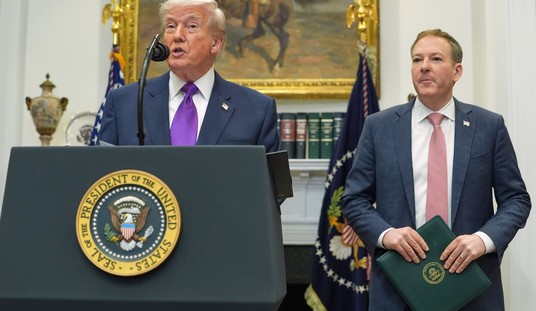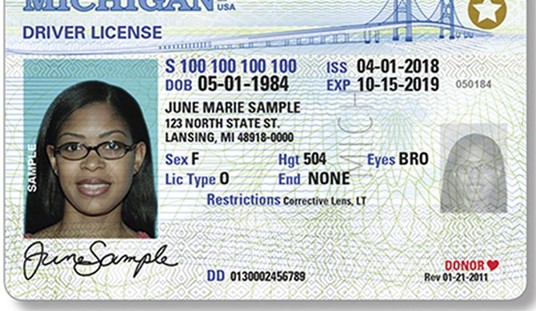The Fourth Amendment of our sensational Constitution reads as follows:
“The right of the people to be secure in their persons, houses, papers, and effects,[a] against unreasonable searches and seizures, shall not be violated, and no Warrants shall issue, but upon probable cause, supported by Oath or affirmation, and particularly describing the place to be searched, and the persons or things to be seized.”
What this means is: Government can’t invade your property or grab your stuff – without first securing a warrant. And they have to have a darn good and specific reason to ask for said warrant.
In this the Digital Age, we yet again find our government lagging way behind We the People and our private sector.
We do not store our “papers and effects” – the way we used to store “papers and effects.”
Just about gone are the old school rows and rows of filing cabinets – storing reams and reams of our papers. They have been replaced nigh totally – with records being stored electronically.
Sometimes on hard drives we own. But more often – and with ever increasing frequency – remotely on servers on which we rent space.
All too often our government seems to think that this technological advancement – allows them to bypass totally the Fourth Amendment. In a plain reading of the Constitution and what its authors and ratifiers intended – it absolutely does not allow them to do any such thing.
The primary rule on any digital record is – can you print it out? The answer, of course, is yes. Congratulations, your digital record – is a part of your Fourth Amendment-protected “papers.” All of them are – everywhere. Government – go get a warrant.

But we can address the rest of this, if government insists.
Are digital storage units anywhere – part of your “persons, houses, papers, and effects?”
Quite obviously – if you purchase one, of course it is. But remote servers – which you do not own, but on which you lease space?
Also, quite obviously, those electronic “filing cabinets” are also yours – far more so than they are the government’s. So accessing them, too, requires the government getting a warrant.
To wit: If you rent a physical storage unit – to store, say, your file cabinets full of your papers – the government would have to get a warrant to access it and them.
Think of those remote, rented servers – as your digital storage units. The government needs a warrant to access them.
How far behind is our government? The “newest” law – most pertinent to addressing digital records – is the 1986 Electronic Privacy Communications Act. A law enacted – four years before the advent of the private sector Internet.
Yet again – the government is lagging way behind We the People and our private sector.
This rendered-ridiculous-by-history law pretends to allow the government to read our emails without a warrant – if the emails are older than 180 days. Because the government at that point considers the emails “abandoned.”
Given modern email systems and their infinite, ceaseless storage – this is patently absurd.
Oh: And that provision of the law – was unconstituional the moment it passed.
The point of the Fourth Amendment – was to protect our stuff from government. Up until they obtained a warrant.
Technological advances – don’t change that. Old principles – for new problems.
An email of mine – is an email of mine. I can print it, so it’s a part of my “papers.”
No matter how old it is. No matter how or where I store it: Printed out and in a file cabinet, or electronically on a hard drive in my possession – or on a remote server in Indiana, India or Ireland. It is the WORLD Wide Web, after all.
How bizarrely out-of-it is the 1986 law – and the various courts trying to apply it to today’s tech landscape? Get a load of this:
“In 2013, Microsoft challenged a U.S. search warrant seeking emails stored in its Dublin, Ireland, data center….In 2016, a federal appeals court sided against the government, ruling that the statute does not provide the authority for a warrant compelling Microsoft to disclose emails stored outside the United States. The decision was based on the well-established U.S. legal principle that presumes U.S. laws are meant to apply only within the territorial jurisdiction of the United States unless a statute explicitly provides otherwise.”
Ummm…yeah. It’s a WORLD Wide Web, folks.
You want to bring back server farms to America from Ireland? Start by making our 35% corporate tax rate look a whole lot more like Ireland’s 12.5%. And make our regulations and the rest of our laws a whole lot less obnoxious to our private sector. Make America(n Storage) Great Again.
“Existing laws made sense for an era of floppy disks, landline phones and an encyclopedia that for most required a trip to the library to access. Much of our data today is stored via a network of remote servers spread throughout the world that allows us to access data from anywhere with an internet connection. Further, each nation has different laws on privacy and electronic storage, so what may be legally required to disclose in one country may be illegal in another.
“This leads to companies, not courts, having to choose between disregarding a court order from country A and violating the privacy laws of country B. Consumers also face uncertainty about the security of their electronic communications – such as email, text messages and email attachments.”
Well, our Constitution is exquisitely clear. Unfortunately, our Congress and its laws are not.
We desperately, immediately need to write a law that is a whole lot more pertinent to today’s private sector – and a whole lot more Constitutional – than is the ridiculous 1986 Electronic Privacy Communications Act.
Please. (I thought I’d end by asking nicely.)













Join the conversation as a VIP Member